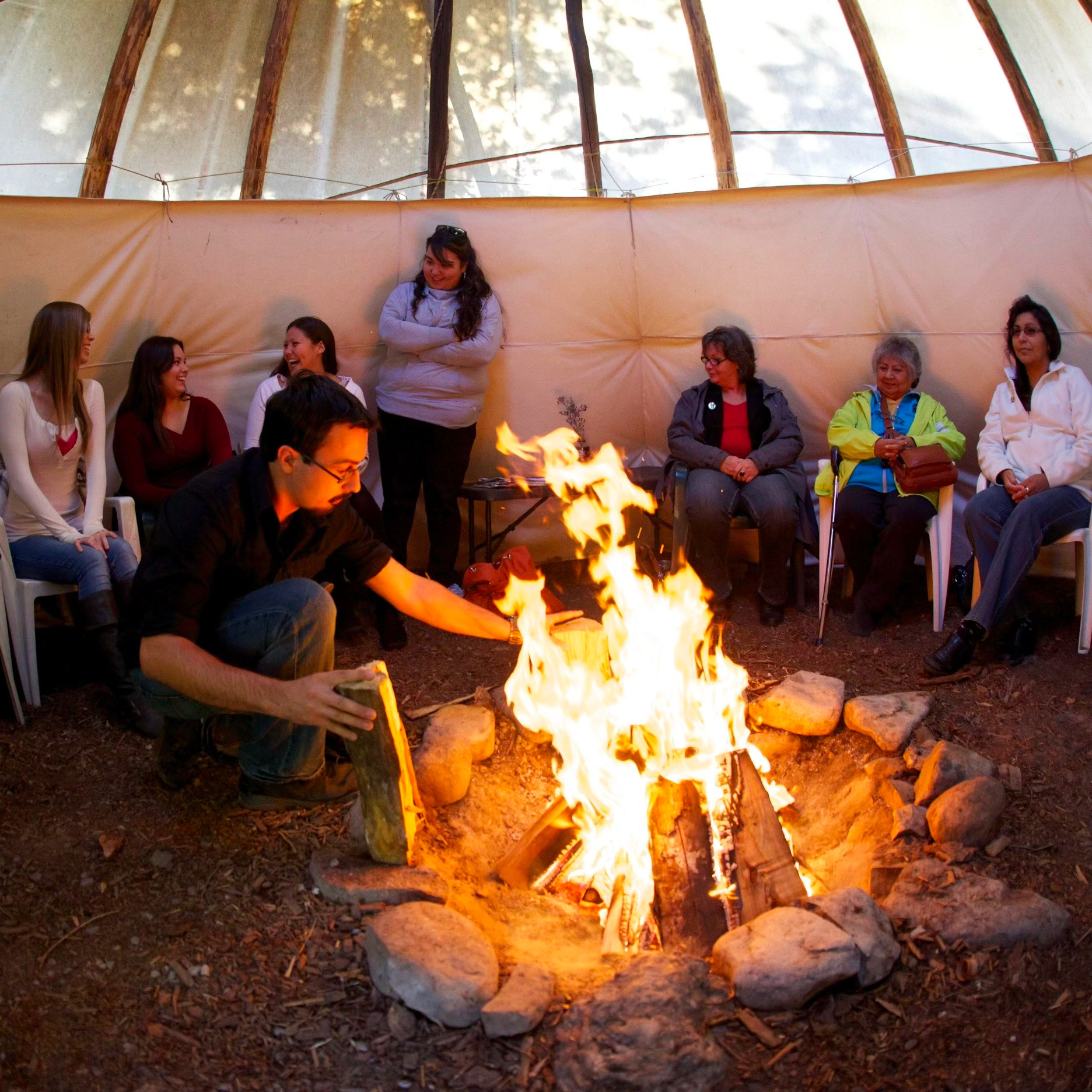Ishkodehwin Peer Mentorship Program
February 24, 2023

It’s Monday night at the First People’s House of Learning (FPHL) and students are huddled together at tables. Having just finished a hot meal, they’re now prepping for quizzes and going over essays. It may not appear that anything special is happening, but for those who know, it’s a powerful moment indeed.
These students, taking part in the Ishkodehwin Indigenous Peer Mentorship Program, are finding a home away from home. They’re helping to build a community.
Designed to assist incoming Indigenous students in making a successful transition to university life and academic expectations, Ishkodehwin offers peer-to-peer support, intentional mentorship opportunities and cultural engagement. Under the direction of the FPHL, the program connects upper-year Indigenous student mentors with first-year students to help guide newcomers through their first year of university, offering support in areas such as academics, life skills and overall well-being.
“One of the goals of the mentorship program is to recreate that relationship that other students have with an older sibling, parent, auntie, or older cousin who has gone to university and can act as a support person,” says Professor Dawn Lavell-Harvard, director of the FPHL. “For some Indigenous students, they may be the first person in their family – or, for some, the first people in their communities – to attend post-secondary school. For them, it is a whole new world.”
Matched with mentees by area of study, First Nation, or by areas of interest, peer mentors act as a guide to information and experience that new students won’t find in guidebooks and academic calendars.
“There’s all of this ‘secret’ information, so to speak, that does not come in a manual, but only from the experience of having survived an academic institution,” notes Prof. Lavell-Harvard.
Then there is the academic support, where mentees gain access to peer review for papers, a peer/mentor-led look at assignments and readings, and help with quiz/test/exam preparation.
“By providing a chance for the students to check in, it helps ensure the week gets off to a good start,” explains Prof. Lavell-Harvard. “And the social and cultural aspects are an energizing way to begin as well.”
Providing time and space for students to learn about and reclaim their cultural identity is essential.
“We know that a solid cultural identity is an important factor in a post-secondary experience for students,” explains Prof. Lavell-Harvard. “And some Indigenous youth, through no fault of their own, may not have a connection to their culture. Whether it be because of residential schools or child welfare or any number of factors, they have not yet become deeply involved in their cultures.”
Ishkodehwin sees many outlets for cultural exploration and celebration.
“We offer workshops, there’s dancing, some of the men are doing drumming…” she adds.
This building of culture and community helps students navigate issues such as racism, homesickness, and mental health. It helps build young people up, providing resiliency and self-esteem.
The mentors also gain from the relationship.
“It’s exciting to watch the mentors build their leadership skills,” says Prof. Lavell-Harvard. “They help around our office, get to lead workshops, and are building valuable job experiences and quality skills to become better facilitators and workers.”
All of these transferable skills help the mentors transition into their careers, particularly in areas that require critical thinking, problem solving, and communications. At the same time, they are building networks with fellow students, faculty, and community members.
And, speaking of community, it takes one to build one.
While the program started off as a targeted initiative by the Ministry of Colleges and Universities, it now relies on the generosity of donors.
“We thrive on philanthropy,” explains Prof. Lavell-Harvard. “We exist through the generosity of donors who enable us to provide employment for our students and invaluable support and services. Together we are helping to preserve both culture and community.”